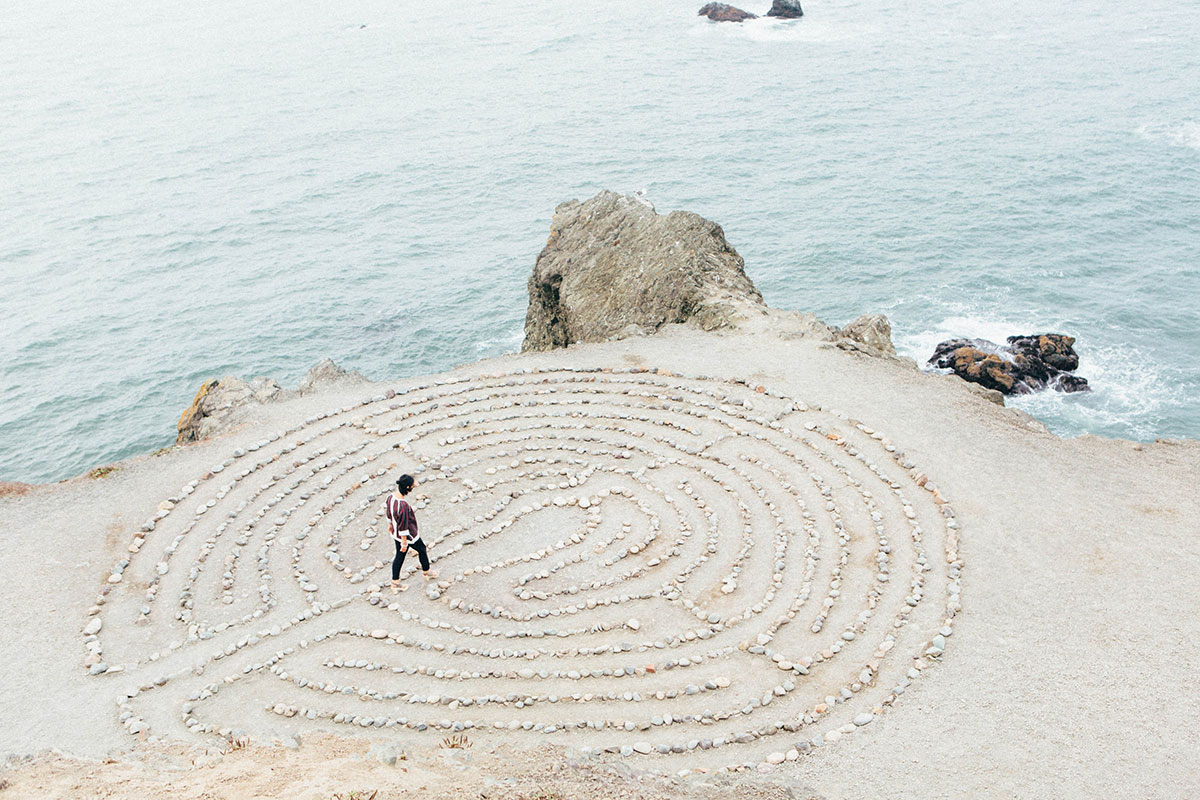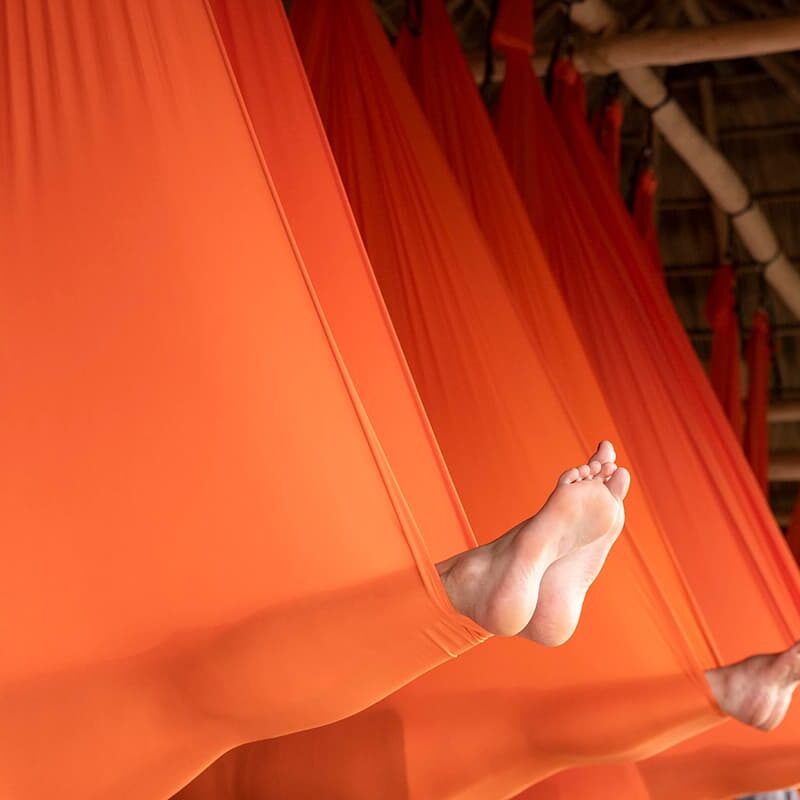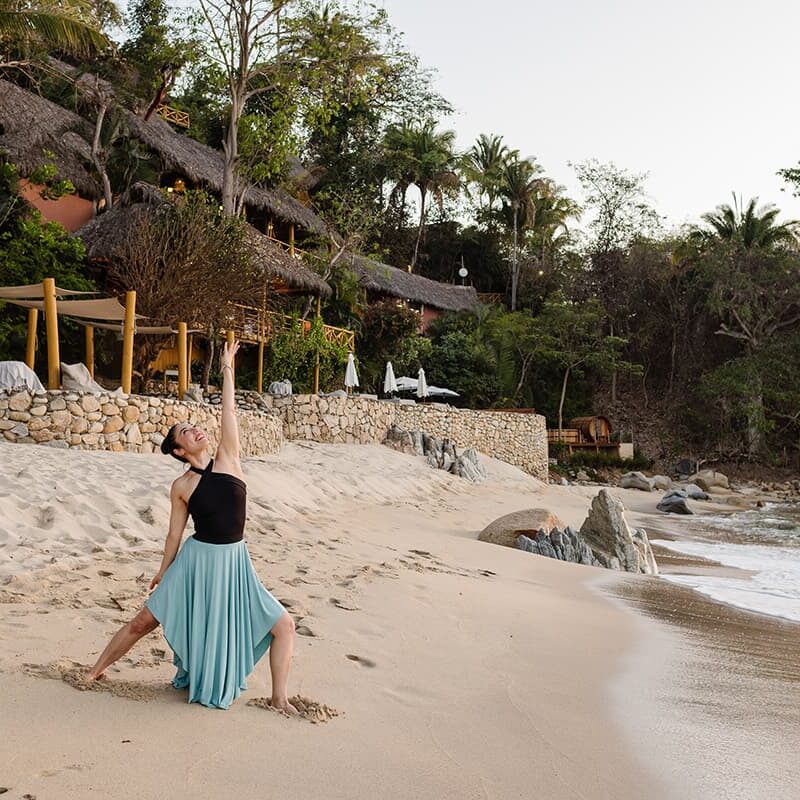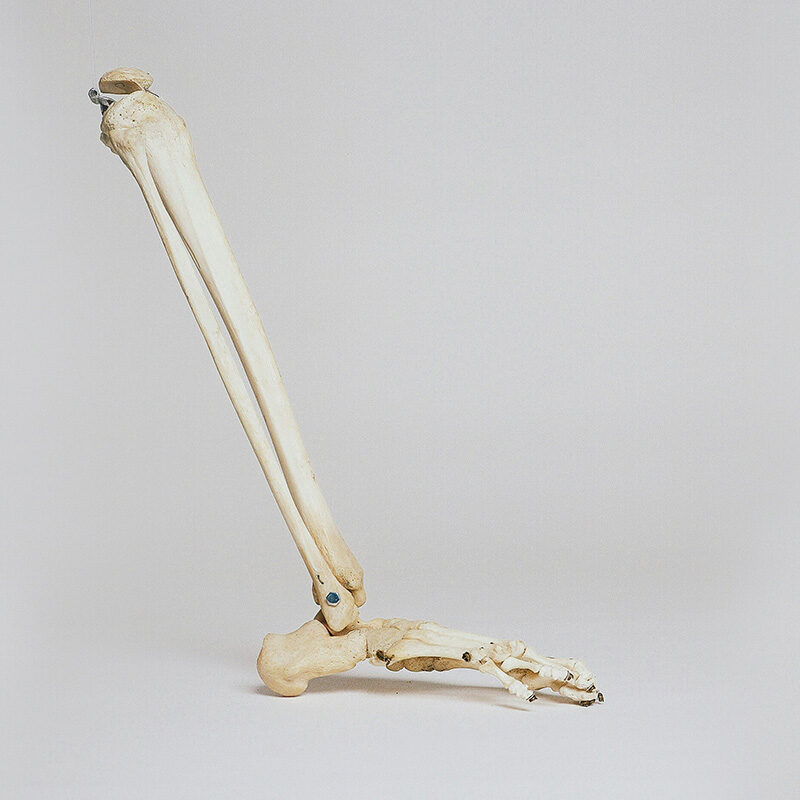Based on The Miracle of Mindfulness by Thich Nhat Hanh.
Xinalani's All Inclusive Packages
I have always been inspired by the teachings and books of Thich Nhat Hanh, a Zen Master and peace activist. In one of his books called “The Miracle of Mindfulness” he shares a number of mindful exercises and approaches for a conscious breathing practice.
Beautiful Eco Chic Rooms and Beach Casitas
Here I have selected a few for your enjoyment. I hope they inspire you to start or continue practicing meditation and present moment awareness.
Washing the dishes
The first time I read about this practice I knew my excuses on not having time to practice mindfulness were over. I was surprised at how brilliant this exercise was! Thich Nhat Hanh had shown me that we can always find undesirable chores to do at home and convert them into an opportunity to practice present moment awareness.
“Wash the dishes relaxingly, as though each bowl is an object of contemplation. Consider each bowl as sacred. Follow your breath to prevent your mind from straying. Do not try to hurry to get the job over with. Consider washing the dishes the most important thing in life. Washing the dishes is meditation. If you cannot wash the dishes in mindfulness, neither can you meditate sitting in silence.”
Half-smile when you first get up in the morning
As soon as you open your eyes in the morning draw a half-smile on your face and start inhaling and exhaling 3 times, following your breath. Thich Nhat Hanh advises to write a note next to your bed or even on your ceiling with the word “smile”, so it is the first thing you see in the morning. Let this half-smile keep you company throughout the day; anywhere you find yourself, sitting, standing, looking at a child, or listening to music. Half-smile and breath 3 breaths. Even when you realize you are irritated…..stop….. half-smile and breathe.
Measure your breaths by your footsteps
Start walking gently in your home, in a garden, along a river or a path. Set up an unhurried pace. Determine the number of steps that takes you to inhale, and the number of steps it takes you to exhale. Continue for a short period of time. Then try to lengthen each inhalation and exhalation by one step. Let it be natural and continue for 10 breaths. Then return your breath to normal. Rest for 5 minutes and repeat the practice.
Counting your breath
This exercise can be done walking or seating in a meditation position. As you inhale, think “I am inhaling, one”, when you exhale think “I am exhaling, one”. Breathe from the stomach in a calm and natural way. When beginning the second exhalation be mindful that “I am inhaling, two”, when you exhale be mindful that “I am exhaling, two”. Continue on up through 10. Whenever you lose count, return to one.
Following your breath while carrying on a conversation
I really love this exercise since it helps me with my attentive listening. Especially nowadays when our phones and connected devices are consuming our attention and pulling us from the world and people that actually surround us. So when you are about to start a conversation try to be mindful of your breath while listening to your friend’s words attentively, listen to your own replies too. Breathe long, light and even breaths. Be aware of your emotions and your body’s reactions to this conversation. Do not get lost in the words. Continue this way.
Mindfulness of the body position
This exercise is very practical, you can do it anytime anywhere. “First, focus your attention on your breath. Then be mindful of the position of your body, whether you are standing, sitting down or lying. Be aware of where you walk, sit or lie. Be conscious of the purpose of your position”. I also heard a similar exercise on Andy Puddicombe’s Headspace. He says try to be aware each time you sit down and each time you stand up. How long in your day can you be aware of that? It’s an interesting challenge that each time brings you back to the present moment.
Mindful driving
So this is not part of Thich Nhat Hanh’s book, rather something I gathered on my own
by following his teachings. For those of us who sometimes commute by car, I have found many rewards in the practice of mindful driving. It is sort of a given you would say, considering how dangerous cars are, drivers are expected to be fully present. But in reality, most people on their daily car commutes are bored and distracted. So it takes a lot of discipline to practice mindfulness for the daily time behind the wheel especially when so much entertainment is now available on our cell phones and the temptation is great to catch up with our messages at each red light.
When driving, first I try aligning my body to get a comfortable straight position. Then I find my purpose which is driving safely, and then I breathe and enjoy each part of the ride, the touch of the wheel in my hands, the smell of the car’s interiors, the feel of the seat beneath me, the sight of my surroundings, the flow of traffic. I really think I have avoided plenty of accidents thanks to practicing mindful driving.
A slow motion bath
Allow yourself 20 or 30 minutes to take a bath. Excess time in the shower is not environmentally sustainable but if you have a tub, you can control the amount of water you use. The idea of this exercise is to not hurry and enjoy an everyday habit as a delicious self-gift. “From the moment you prepare the bathwater, to the moment you put on clean clothes, let every motion be light and slow. “Place your attention to every part of your body without discrimination or fear”. Try and be aware of where your body ends and where the water begins. Be mindful of your breath. When you finish you’ll feel renewed and relaxed, as a lotus flower in a pond.
To sum up, mindfulness is not something you’re good or bad at, it’s a daily practice. Some days your mind will sit still and easy, other days, it will be as hectic as a monkey in a cage. Just being able to recognize and accept this is already a great step in mindfulness. The rest, as the master would say, is 99% practice. Let’s maintain a humble, non judgemental daily practice of little things we can do in mindfulness, just enjoying the present moment.
About the Author

Co-founder of Xinalani, entrepreneur, yogini and passionate mother of three, Ana Paula has been shaping all sensory things around the Xinalani universe since its very inception in 2009. You will perceive her delicate creativity and her contagious vision in every little detail of the Xinalani experience.
























